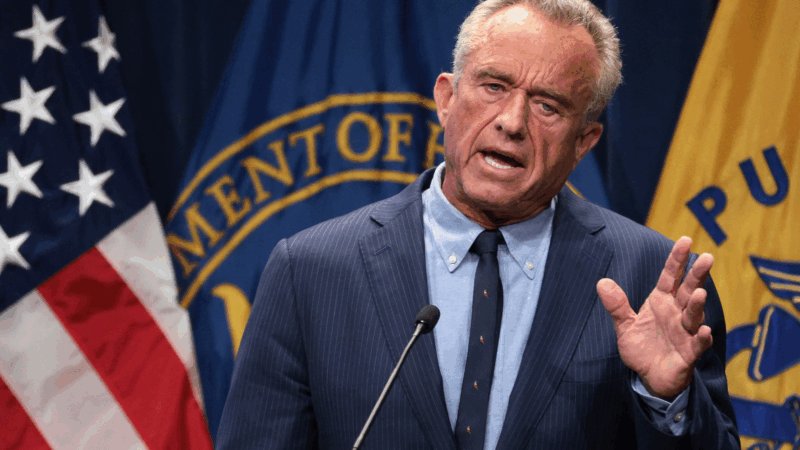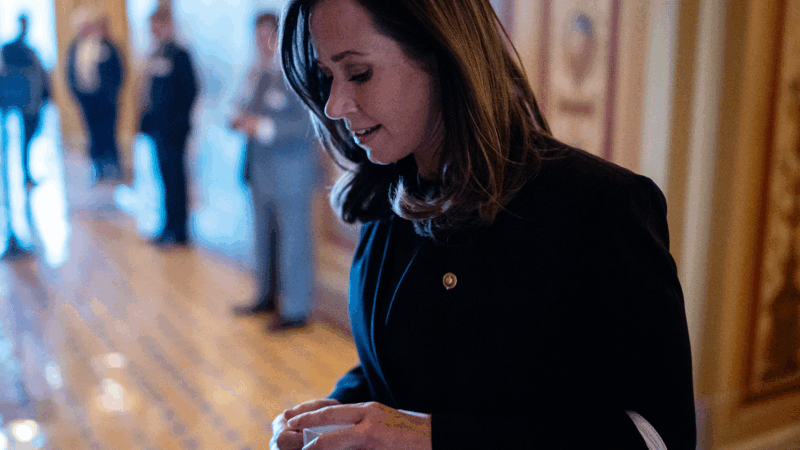RFK Jr. names new slate of vaccine advisers after purging CDC panel
Health Secretary Robert F. Kennedy Jr. has unveiled eight people he has chosen to serve on the Centers for Disease Control and Prevention’s vaccine advisory panel – just two days after taking the unprecedented step of removing all 17 sitting members.
On Wednesday, Kennedy listed the names and short bios of the new advisers who will join the Advisory Committee on Immunization Practices, or ACIP, at its upcoming meeting in late June.
“All of these individuals are committed to evidence-based medicine, gold-standard science, and common sense,” Kennedy said in a post on X, “They have each committed to demanding definitive safety and efficacy data before making any new vaccine recommendations.”
The new members are Dr. Joseph R. Hibbeln, Martin Kulldorff, Retsef Levi, Dr. Robert Malone, Dr. Cody Meissner, Dr. Michael A. Ross, Dr. James Pagano and Vicky Pebsworth.
“This is a huge win for the medical freedom [m]ovement,” David Mansdoerfer, former deputy assistant secretary for the Department of Health and Human Services in the first Trump administration, wrote in a post on X, “they did everything by the book to put together this excellent slate of appointees.”
Public health advocates are wary.
“Kennedy did not pick people with strong, current expertise in vaccines,” says Dorit Reiss, a professor at UC Law, San Francisco, who studies vaccine policy. “It tells me that Kennedy is setting up a committee that would be skeptical of vaccines, and possibly willing to implement an anti-vaccine agenda.”
The panel of outside experts helps set vaccine policy and craft recommendations for the immunization schedule, which guides health providers and influences which shots are covered by health insurers.
Kennedy’s new selections have varied backgrounds, though many rose to prominence during the COVID-19 pandemic, when they criticized government policies on school closures and lockdowns, and the mRNA vaccines.
For example, Kulldorff, an epidemiologist and biostatistician, helped write the Great Barrington Declaration with Dr. Jay Bhattacharya, then a Stanford University professor who is now director of the National Institutes of Health. That open letter questioned lockdowns and other public health measures early in the COVID-19 pandemic. Kulldorff declined to comment when reached by NPR.
Malone has gained a large following for undermining the COVID-19 vaccine. A scientist who worked on early research into the mRNA technology, he became critical of the shot and made baseless and disproven claims, including falsely stating that getting vaccinated puts people who have already had COVID-19 at higher risk.
Some of those selected by Kennedy hold academic appointments at well-known universities.
In fact, Meissner, a professor of pediatrics and medicine at Dartmouth College‘s Geisel School of Medicine, was previously a member of ACIP. A CDC database posted in March shows that Meissner made 12 conflict of interest disclosures during his time on the committee from 2008 to 2012. Kennedy has cited conflicts of interest as one reason for sacking the previous committee members. Meissner did not immediately return a request for comment left on his voicemail and by text.
Meissner was a member of the panel of Food and Drug Administration vaccine advisers that made recommendations to authorize the use of COVID vaccines. He has criticized recommendations to mask children, including in an op-ed he co-wrote with current FDA Commissioner Marty Makary, and has indicated support for Kennedy’s recent decision to remove healthy children and pregnant women from the COVID-19 vaccine schedule.
Another member, Vicky Pebsworth, has served on the board of the National Vaccine Information Center — a prominent advocacy group that warns against vaccine risks.
Dr. Retsef Levi, who’s at the Massachusetts Institute of Technology, has stoked concerns about the shots. In a social media post in early 2023, Levi said that all “COVID mRNA vaccination program[s] should stop immediately…because they completely fail to fulfill any of their advertised promises regarding efficacy” and there was “mounting and indisputable evidence that they cause unprecedented levels of harm, including the death of young people and children.”
Kennedy’s decision to replace the entire roster of the ACIP jolted the public health and medical establishment, who feared the move cleared the way for a committee that will take steps to undermine vaccine policy.
The next ACIP meeting is scheduled for June 25-27. The committee can only vote when a quorum is present, which is defined in its most recent policies and procedures as when “more than half of the voting members are present.”
Kennedy has named eight members to the committee, which falls short of quorum for the committee, which is currently chartered for nineteen members, says Reiss, with UC Law, San Francisco. Therefore, at least two ex-officio members from other HHS agencies will need to be temporarily authorized to vote for the committee to proceed, she says.
Forget the State of the Union. What’s the state of your quiz score?
What's the state of your union, quiz-wise? Find out!
A team of midlife cheerleaders in Ukraine refuses to let war defeat them
Ukrainian women in their 50s and 60s say they've embraced cheerleading as a way to cope with the extreme stress and anxiety of four years of Russia's full-scale invasion.
SNL mocked her as a ‘scary mom.’ In the Senate, Katie Britt is an emerging dealmaker
Sen. Katie Britt, Republican of Alabama, is a budding bipartisan dealmaker. Her latest assignment: helping negotiate changes to immigration enforcement tactics.
As the U.S. celebrates its 250th birthday, many Latinos question whether they belong
Many U.S.-born Latinos feel afraid and anxious amid the political rhetoric. Still, others wouldn't miss celebrating their country
Nancy Guthrie case: How do families of missing people cope with the uncertainty?
When a loved one goes missing, relatives can feel guilty simply for eating, says Charlie Shunick, whose sister was kidnapped. Shunick now helps others navigate a nightmare "nobody is prepared for."
This community festival embraces the joys of a frozen lake — while it still has one
As climate change accelerates, local experts say the date Wisconsin's Lake Mendota freezes over is getting later, making safe conditions for activities that rely on snow and ice harder to predict.






